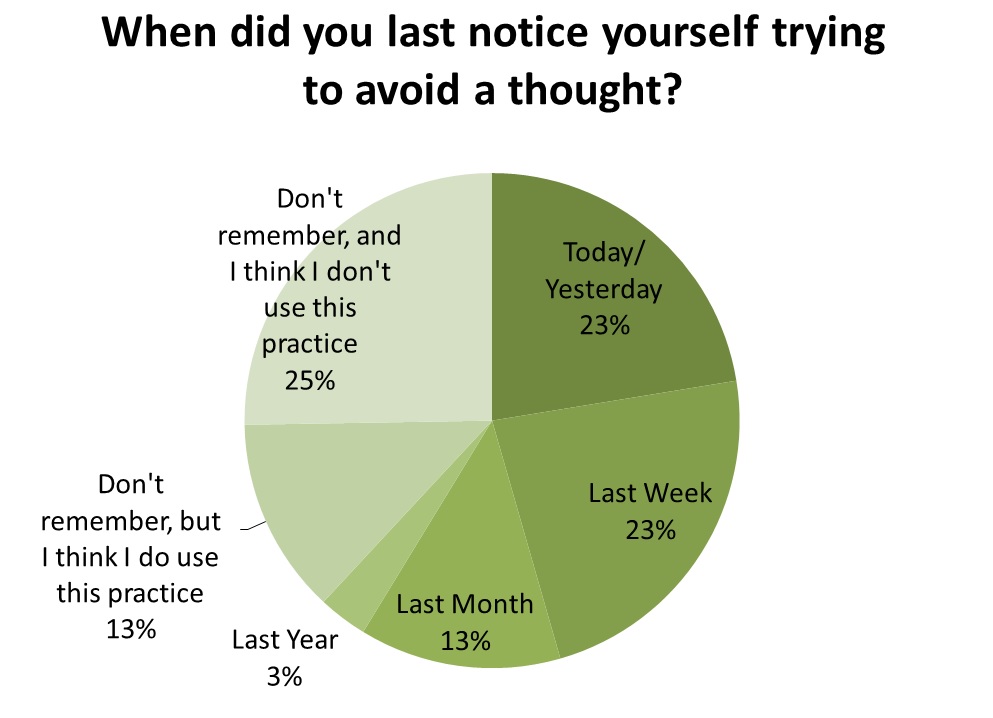This is the last of three habits of noticing that we asked you about on the Rationality Checklist survey. we wanted to know if you could spot yourself bouncing away from a thought, flinching away from dwelling on it or putting it into words. It's a good warning sign you might be about to slip into motivated cognition. You may want to pause to remember you'd rather know the truth and identify a line of retreat.
I notice my mind flinching away from a thought; and when I notice, I flag that area as requiring more deliberate exploration. (Example: I have a failure mode where, when I feel socially uncomfortable, I try to make others feel mistaken so that I will feel less vulnerable. Putting this thought into words required repeated conscious effort, as my mind kept wanting to just drop the subject.)
Before you can start training yourself to intervene and reason clearly, you need to be able to notice that your thinking is clouded. Here's how often our survey respondents noticed this happening to them:
Readers shared some stories of noticing thoughts they'd rather not think and what they did next:
When writing up what I would recommend for others to do for time management I caught myself shying away from some areas of discussion. These where the areas where I was deficient and needed more work. Instead of shying away I need to celebrate them as valuable discoveries.
I considered how admirable historical figures were who promoted harshly criticized, but later vindicated, social beliefs (pro-women's rights, anti-slavery).
I then considered what the best modern day analog is, and came up with animal rights, which I flinched away from, since I am not an active vegetarian, nor have I spent much time thinking of the issue. I have since logged this as a very likely inconsistency in my beliefs and actions, and worth much further thought."
Colloquially at CFAR, we like to say that the thoughts that we flinch away from are surrounded by Ugh Fields. Get too close to a painful thought, and you'll be in distress and have a strong disincentive for coming back to the idea or trying to resolve it. Like our readers, you need a little breathing room to be able to look at the thought that's repelling you, so you can decide what to do about it.
At our workshops we teach a couple different classes that can help you stride boldly through an ugh field to examine the noxious-seeming concept at the center. Our class on Againstness helps you deliberately engage your parasympathetic nervous system, so you can examine the idea from a place of calm, cool analysis, not the sympathetic fight/flight/freeze response your fear may have triggered. Our Aversion Factoring class helps you figure out what you're frightened of and gives you some tools to adjust your response. You may be right to be nervous, but still have a disproportionate flinch that you'd like to turn down.
Check out all the results and stories from out Rationality Checklist survey by browsing the ‘Rationality Checklist’ category



